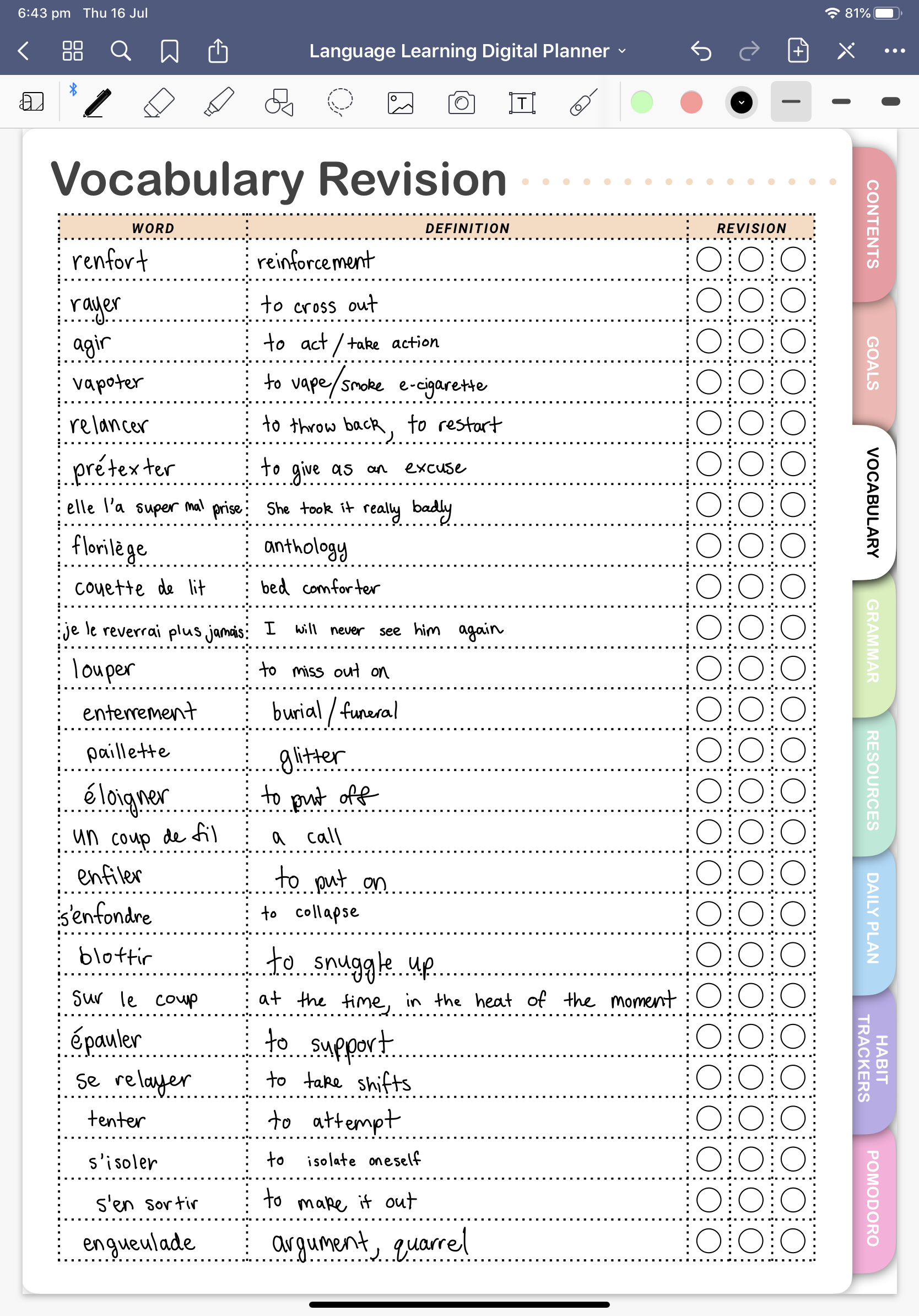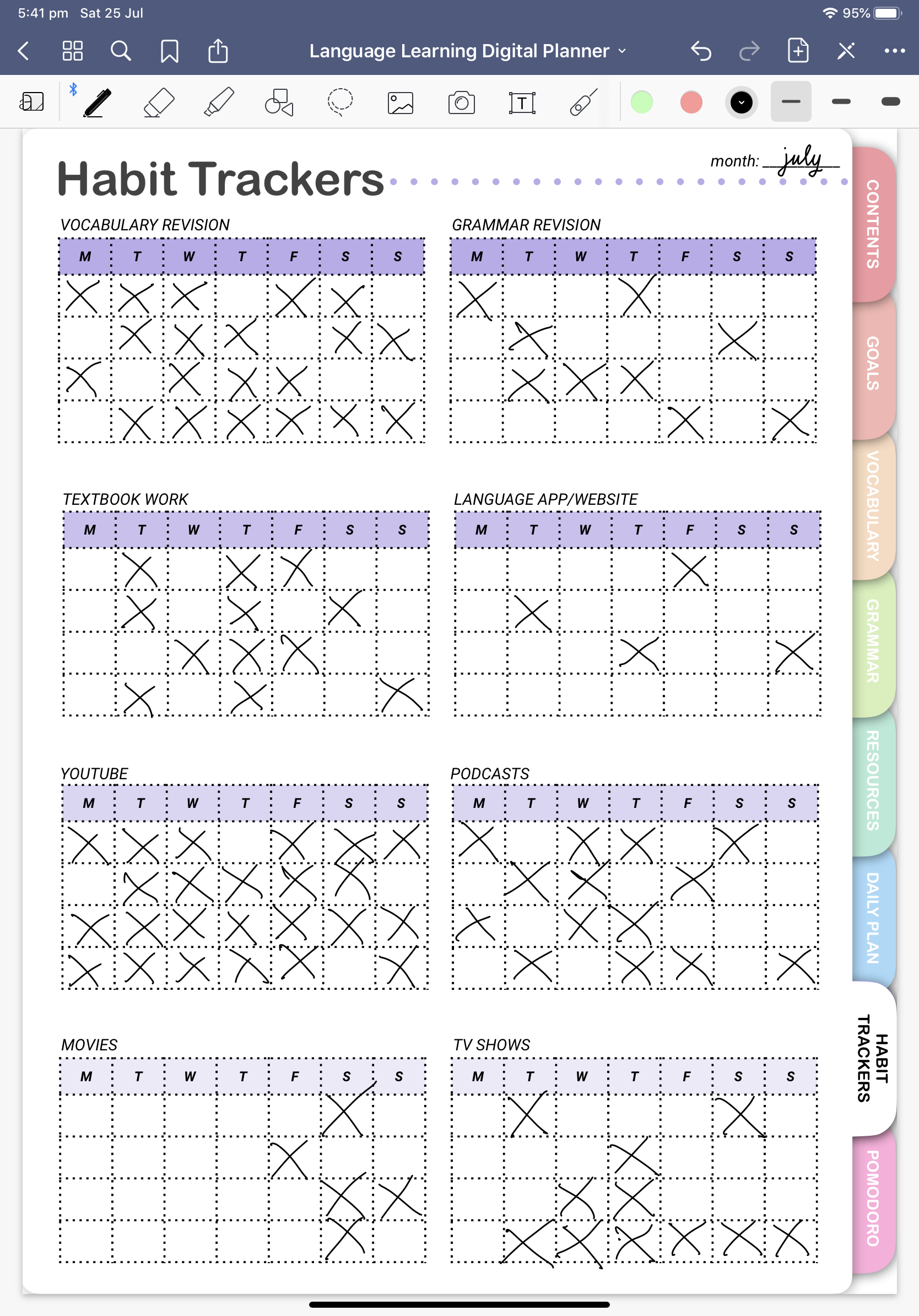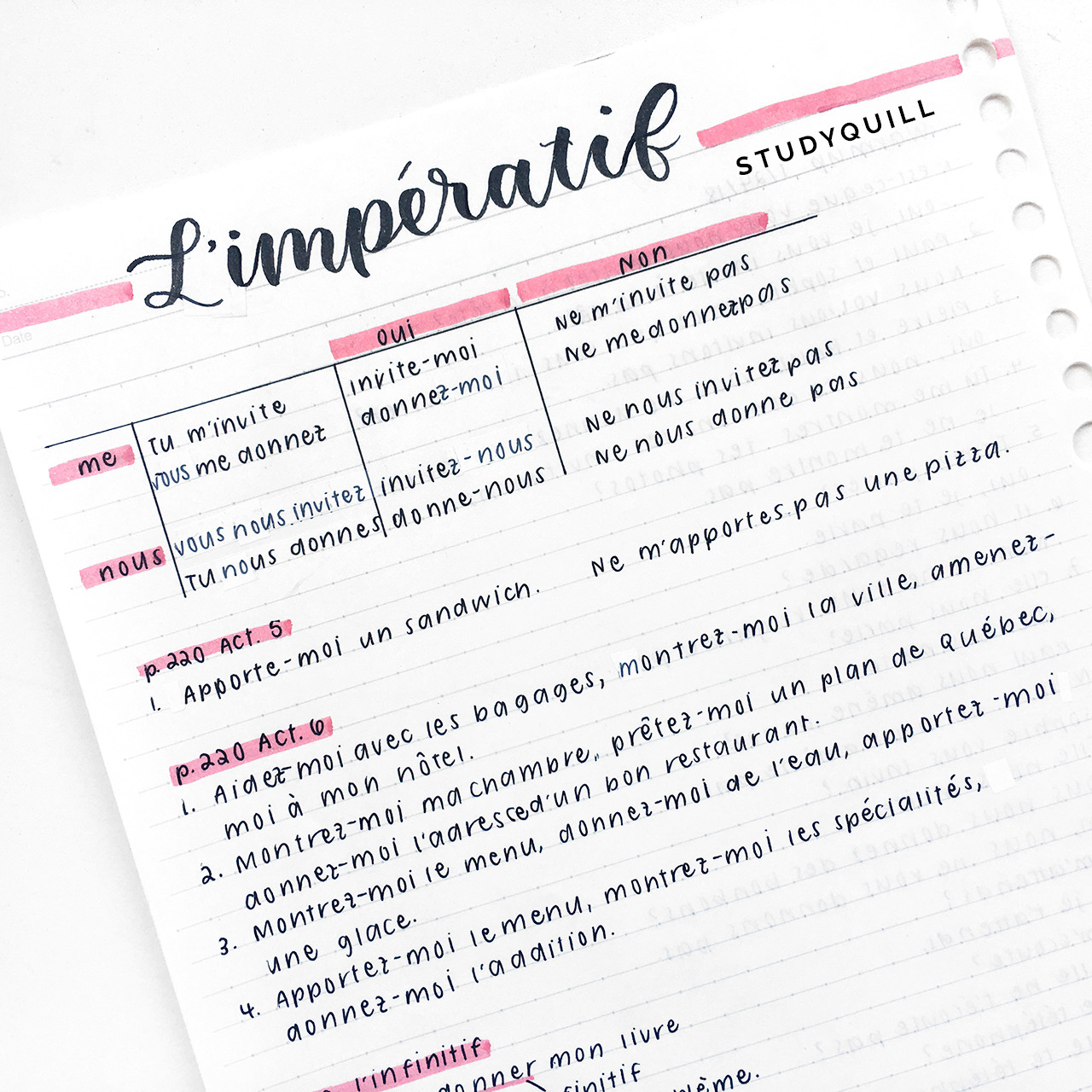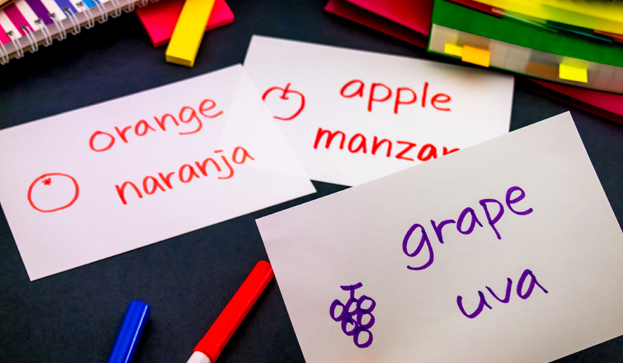
How To Learn A Language Without Classes
The best ways to learn a language without going to classes include: watching foreign language films on Netflix, using a language learning planner to help yourself stay motivated, following native speakers on social media, chatting to native speakers on either free or paid online platforms, creating a foreign language music playlist, listening to podcasts in your target language, changing the language of your phone, borrowing language textbooks for free from your local library, watching the news in your target language and also writing daily diary entries in your target language!
1. Watch Netflix With The Language Learning With Netflix Chrome Extension
One of the best ways to learn a language without attending traditional language classes is to watch Netflix! Why? Because it doesn’t even feel like studying!
Pro Tip: Use the Language Learning With Netflix Chrome Extension while watching Netflix on your laptop as it will display two lines of subtitles – one in english and the other in your target language! You can even hover over words and it will give you definitions!
Read Also: How To (Eventually Become Fluent) By Watching Netflix
2. Use A Language Learning Planner To Stay Motivated
The down side to not going to traditional language learning classes is that it is very easy to become unmotivated and slack off with your studying. 🙁 Luckily there is a very easy way to boost your motivation – use a language learning planner!
A language learning planner can help you stay motivated while self studying a language through it’s wide range of templates and pages that help you set goals and also learn! There are two types either a digital language learning planner for an iPad or a printable language learning planner that you can put into a folder or binder!
These planners include pages such as:
- Goal Planning Pages
- Vocabulary Pages
- Verb Tenses
- Grammar Rules Template
- Cornell Style, Lined & Grid Notes
- Resource Worksheets
- Daily & Study Planning
- Habit Trackers
- Pomodoro Study Tracker
- + much more
These Are Some Of My Favourite Pages From My Digital Language Learning Planner…
One of my favourite vocabulary templates is the vocabulary revision page because of the revision track on the right hand side that encourages me to revise and study all the new french words I have written down! I simply cover up the definition of the word, say it out loud and if I got it correct I put a tick in the corresponding circle/box. Once I have studied it three times on different occasions the word should be in my long term memory!
Another template that I find really useful while independently learning a language is the habit trackers page! It encourages me to take part in many different language learning methods such as vocabulary and grammar study, textbook work, language app or website usage, watching YouTube videos, listening to podcasts as well as watching movies and TV shows. Each time I study I put a cross in the box for the day. It’s really satisfying at the end of each month to see how much time and effort I have put into my studies and also hopefully see my improvements!
There Are Many Other Very Helpful Pages So You Should Check Out The Two Different Types Of Language Learning Planners Below!
Read Also: How To Stay Motivated Learning A Language
3. Follow Native Speakers On Social Media (Instagram, YouTube, TikTok etc.)
You probably use some form of social media on a daily basis. Whatever platform is your favourite start subscribing or following creators who are native speakers of the language you are learning!
You know why it is such a great idea?
Imagine you don’t feel like putting in the effort to language learn one day. But you are scrolling through your instagram feed and a photo of a native speaker creator pops up! You read the caption without much thought! Guess what!! You have just done some language study and you didn’t even know it!
Read Also: You Can Use YouTube To Learn A Language. Here’s How…
4. Chat To Native Speakers Online
As you are not going to language classes, it can become difficult to hear your target language being spoken out loud in real time. That is why it is a good idea to chat to native speakers online on a free or paid platform to improve your listening and speaking skills! There are many great platforms that provide this service but below are some of the best ones I have discovered!
Rype
Rype is a platform where you can get one-on-one personalised language lesson with pre-vetted teachers online. You can take lessons from the comforts of your home or on-the-go and around your busy schedule. Book a one-on-one video call lesson on Rype here!
Lingoda
Lingoda is an online language learning school. They offer 60-minute small group or private classes run by native speaking, qualified teachers. You can learn at whatever time suits you as the classes run 24 hours a day, 7 days a week.
Check Out The Online Courses For Lingoda Below:
5. Create A Foreign Music Playlist On Spotify
If you are a big music fan and spend lots of time listening to music each day, you should definitely consider starting to listen to music in the foreign language you are learning. This is a great example of how you can change a small habit into a language learning session!
I would start by finding other people’s playlists on Spotify or your preferred music platform and then you can start building your own playlist from the songs you discover and love!
Read Also: The Ultimate Guide To Learning A Language Through Music!
6. Listen To Podcasts In Your Target Language
One of my favourite ways to learn a foreign language by myself is to listen to podcasts. There are two main types of podcasts you can listen to as a language learner either podcasts made specifically for learners that have grammar lessons etc. in them or podcasts made for native speakers.
If you are just starting to learn your language I would suggest that you start by listening to podcasts made for language learners but as you progress start listening to podcasts for native speakers.
7. Change The Language Of Your Phone
Nearly every phone model has language settings that can be changed. If you really want to immerse yourself in a language, you need to change the language of your phone to that of what you are studying. In this way you will always see something in the language you are studying even if you haven’t planned to study the language for the day. I mean who can go without looking at their phone for a whole day?
Besides being immersed in your language daily, you will also learn heaps of technology themed vocabulary that you would never have encountered before!
Pro Tip: If you have an iPhone, you definitely should change the language of Siri to your target language. Using Siri is a really cool way to practise your pronunciation and speaking skills. It will also force you to speak quicker as if you take a pause that is too long, she will think you have finished your sentence.
8. Borrow Language Textbooks From Your Local Library
Just because you are skipping out on taking traditional language classes, it doesn’t mean that you can skip out on learning grammar and other more boring aspects of a language. Luckily, in most cases you do not need to splurge on an expensive language textbook as you can find many grammar resources online and also borrow language textbooks from libraries!
I highly recommend that if you want to learn a language seriously without taking classes, that you borrow a language textbook. You don’t need to go through everything in the book but rather follow the textbook’s structure in teaching grammar. In this way it will be a more sequential process, where you build up your knowledge in a way that is tried and tested. This is better than going into the deep end by just searching up grammar on google and hoping that the lessons are appropriate to your level. That being said, it’s not a bad idea to supplement the textbook grammar lessons/notes with information online so you build a better understanding of the language.
9. Watch, Listen or Read The News In Your Target Language
While learning a language without classes, you will want to find as many ways as possible to weave your learning into your daily routine. A great way to do this is to watch the news in your target language every day. Most countries have some sort of international news company that has multiple news channels in different languages. Otherwise, if you can not find a channel with the news in the language you are learning, look for websites online that provide that service or listen to a news podcast or read the news via an online platform.
Here are some ideas of how you can make watching the news in a foreign language a daily habit:
- Put the morning news on in the background on the TV while getting ready for work
- Listen to an audio version of the news while commuting to work
- Read the news on your phone during lunchtime breaks
- Watch the news at night time in your target language
Remember while reading, listening or watching the news in your target language you should be actively studying it. This means that you should write down new words or phrases that are relevant to you, that you can learn and reproduce yourself in a written or spoken context! A good way to keep a vocabulary list is to use a printable language learning planner or digital iPad language learning planner.
Make it a habit & keep yourself accountable
Try to make watching/listening to/reading the news in your target language a habit, you could even use a printable habit tracker to keep yourself accountable.
10. Practise Your Writing Skills With Daily Diary Entries
While it may seem a bit cringe to write in a diary, this activity is a really good idea for beginners and intermediate language learners as it helps you express yourself while learning more vocabulary that is specifically relevant to you. It is also really great way to test out your skills writing in past tense and maybe even future tense in your diary!
Ideas for what to write in a language diary
- Recount what you did today
- Write about a dream
- Make a future goal plan
- Write about your last holiday
Further Reading
There are many different note taking methods that can work well for language learning. To take effective notes for language …
If you are working full time and you want to learn a language, you need to make the most of …
Kinesthetic learners are the most physical of all learning styles meaning they absorb information through movement, touch and motion. Therefore, …
65% of the population are visual learners and therefore learn best by using images, graphics, colours, computers, books and other …
Flashcards are effective for language learning if you make and study them in the correct way. This is by making …
Want to learn a language without a teacher but need some ideas for where to start? You have come to the …








